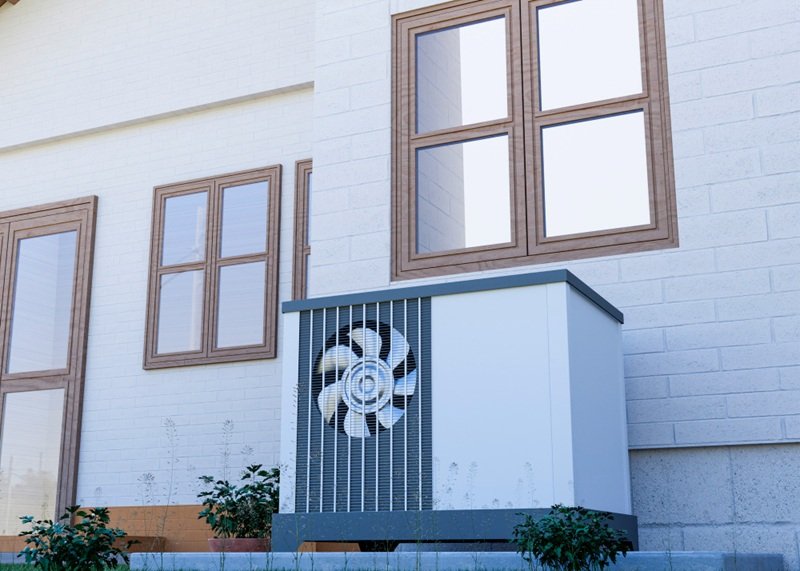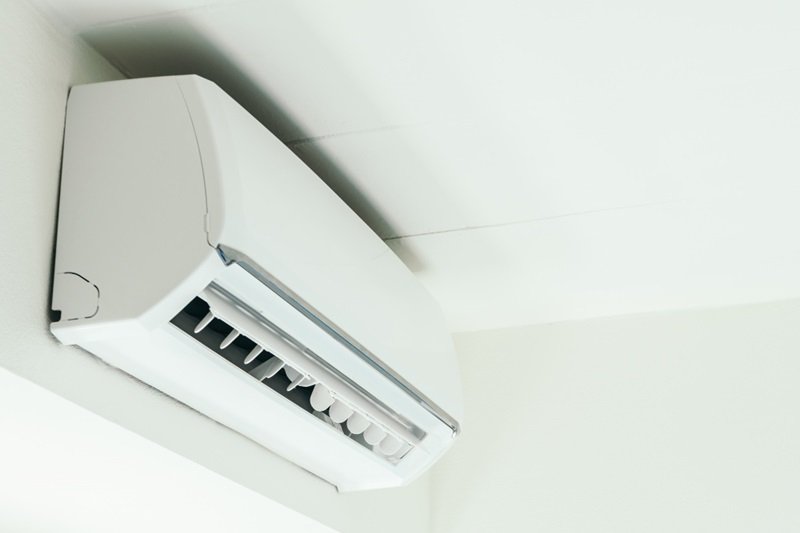Is your air conditioner making strange noises that keep you up at night? Have you noticed your energy bills creeping higher each month despite using your AC the same amount? Does your home feel like a sauna even when the air conditioning is running full blast? These frustrating scenarios might mean your cooling system is crying out for attention.
Your air conditioning system works tirelessly to keep your home comfortable, particularly during those scorching Australian summers. But like any mechanical system, it won’t last forever. Recognising the warning signs early can save you from sweltering heat waves, unexpected breakdowns, and hefty emergency repair bills. The challenge is knowing whether a simple repair will do the trick or if it’s time to bite the bullet and invest in a new system.

Critical Warning Signs Your AC System Needs Immediate Attention
Strange Noises and What They Mean
When your air conditioner starts sounding like a heavy metal concert, it’s definitely trying to tell you something. Grinding noises often point to worn bearings in the motor, while squealing sounds typically indicate belt problems or motor bearing issues. That annoying banging or clanking? It could mean loose parts are rattling around inside your unit, potentially causing damage with every cycle.
Old style air conditioners naturally get noisier as they age due to wear and tear on mechanical components. The compressor becomes less efficient, fan motors start to struggle, and vibrations increase as mounting brackets loosen over time. While a gentle hum is normal, any sudden changes in sound levels or new noises deserve immediate attention.
Your Energy Bills Are Through the Roof
If your energy bills have you doing a double-take, your air conditioner might be the culprit. An inefficient system works overtime to maintain comfortable temperatures, consuming far more electricity than necessary. This increased energy consumption hits your wallet hard, month after month.
Comparing repair versus replacement costs requires looking beyond the immediate expense. Sure, a £500 repair seems cheaper than a £4,000 new system. But if that old air conditioner is costing you an extra £100 monthly in energy bills, the maths changes quickly. Modern units can be up to 40% more efficient than systems from just ten years ago.
Frequent Breakdowns and Constant Repairs
When your technician knows your address by heart, it’s time to reassess your air conditioning situation. Frequent breakdowns aren’t just inconvenient; they’re expensive and stressful. Each service call adds up, and emergency repairs during peak summer often come with premium pricing.
The 50% rule provides a helpful guideline for AC system replacement decisions. If repair costs exceed 50% of a new system’s price, replacement makes more financial sense. For instance, if you’re facing a £2,500 repair on a system worth £5,000 new, you’re better off investing in a fresh start.
Performance Issues That Signal Trouble
Weak Airflow and Uneven Cooling
Walking from room to room shouldn’t feel like travelling through different climate zones. If some rooms stay warmer than others despite your AC running constantly, you’re experiencing classic signs of system problems. Weak airflow might stem from a failing blower motor, clogged filters, or ductwork issues.
Your ducts could be the hidden villain in this comfort crisis. Leaky or poorly insulated ductwork can lose up to 30% of cooled air before it reaches your rooms. Collapsed sections, disconnected joints, or years of accumulated dust and debris restrict airflow, forcing your system to work harder while delivering less comfort.
Your AC Can’t Keep Up with Australian Summer Heat
Australian summers are notorious for their intensity, and your air conditioner should be up to the challenge. If your system runs continuously but can’t maintain your desired temperature during peak heat, it’s clearly struggling. This isn’t just about being slightly warm; it’s about the system’s fundamental inability to perform its primary function.
Temperature struggles become particularly obvious during those 40-degree days. Your AC might manage adequately in mild weather, but when real cooling power is needed, it falls short. The system might maintain 28 degrees when you’ve set it for 22, leaving you hot and frustrated.
Short Cycling: When Your System Won’t Stay On
Short cycling—when your AC turns on and off repeatedly without completing a full cooling cycle—is more than just annoying. This start-stop pattern prevents proper cooling, wastes energy, and dramatically shortens your system’s lifespan. Each startup places maximum stress on components, particularly the compressor.
Understanding this on-off pattern helps identify the severity of the problem. Normal cycles should last 15-20 minutes, allowing the system to cool effectively and remove humidity. When cycles shrink to 5-10 minutes, your system is struggling with issues like oversizing, refrigerant problems, or electrical faults.
Age-Related Concerns and Lifespan Expectations
How Long Do Air Conditioners Last?
The average lifetime of air conditioner systems varies considerably based on type and usage patterns. Split systems typically last 10-15 years with proper maintenance, while ducted systems can stretch to 15-20 years in ideal conditions. These ranges assume regular servicing and moderate use in typical Australian climates.
Quality makes a significant difference in longevity. Premium brands with robust construction might exceed these averages, while budget options often fall short. Commercial-grade components in residential settings can extend lifespan further, though the initial investment is higher.
Signs Your Old Air Conditioner Is Past Its Prime
Technology gaps in units over 10 years old become increasingly apparent with each passing year. Your old air conditioner lacks modern features like variable speed compressors, smart controls, and advanced filtration systems. These aren’t just fancy extras; they represent fundamental improvements in comfort, efficiency, and air quality.
Efficiency drops significantly as systems age, even with perfect maintenance. Wear on components increases friction and reduces heat transfer efficiency. A 12-year-old system might operate at just 60% of its original efficiency, meaning you’re paying for full power but receiving partial performance.

Making the Final Decision: Repair or Replace?
The Financial Mathematics of Replacing Home AC Unit
Calculating long-term savings requires examining multiple factors beyond purchase price. Energy efficiency improvements in modern systems can reduce cooling costs by 30-50%. For a household spending £1,500 annually on cooling, that’s £450-750 in yearly savings. Over a 15-year lifespan, efficiency alone could justify replacement.
Government rebates and energy ratings sweeten the deal further. Many states offer incentives for upgrading to high-efficiency systems. A 7-star energy rating might qualify for rebates that reduce purchase price by 10-20%. These programmes change frequently, so research current offerings when planning your AC system replacement.
Environmental Considerations
Modern R32 refrigerant represents a massive environmental improvement over older alternatives. With 68% lower global warming potential than R410A, switching to an R32 system significantly reduces your carbon footprint. This isn’t just about feeling good; it’s about future-proofing against regulatory changes and refrigerant availability.
Energy efficiency improvements benefit everyone. Reduced power consumption means less strain on the electrical grid during peak summer demand. This collective reduction helps prevent brownouts and reduces the need for additional power generation infrastructure.
Choosing the Right Time for AC System Replacement
Timing your air conditioner replacing project strategically saves money and stress. Autumn and spring offer ideal conditions—mild weather means you won’t suffer during installation, and contractors are less busy, often offering better prices. Avoid peak summer unless absolutely necessary; emergency replacements cost more and involve longer wait times.
Lifestyle considerations matter too. If you’re planning renovations, coordinate AC replacement with other work. If you’re considering selling soon, a new system adds value and appeal. Families with elderly members or health conditions might prioritise replacement to avoid mid-summer failures.
Conclusion: Taking Action on Your Air Conditioning Needs
Your air conditioning system won’t last forever, but recognising warning signs early gives you control over the situation. Strange noises, rising energy bills, frequent repairs, and poor performance all point toward necessary action. Whether you’re dealing with an old air conditioner struggling through its final seasons or facing unexpected breakdowns, you now have the knowledge to make informed decisions.
The choice between repair and replacement of your air conditioning isn’t always clear-cut, but considering factors like system age, repair costs, and energy efficiency helps clarify the path forward. Remember the 50% rule, factor in long-term savings, and don’t ignore those warning signs your system is sending. Modern technology offers impressive efficiency gains and comfort improvements that might surprise you.



Leave a Reply